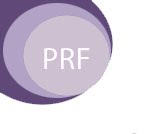I was inspired by this article on how hands on science assessment are a much more accurate reflection of student comprehension. The computer based and physical tasks set for the students, involved much more than you would ever get out of a pen and paper exam, and the students got much more out of it. The study was conducted by the NAEP (National Assessment of Educational Progress)
"Science education is not just about learning facts in a classroom—it’s about doing activities where students put their understanding of science principles into action. That’s why two unique types of activity-based tasks were administered as part of the 2009 National Assessment of Educational Progress (NAEP) science assessment. In addition to the paper-and-pencil questions, fourth-, eighth-, and twelfth-graders also completed hands-on and interactive computer tasks. These tasks help us understand not only what students know, but how well they are able to reason through complex problems and apply science to real-life situations. While performing the interactive computer and hands-on tasks, students manipulate objects and perform actual experiments, offering us richer data on how students respond to scientific challenges." ( NCES 2012)
What they found was, we are missing a trick when it comes to critical thinking. Students can observe and report straight forward data successfully, but struggled when they had to manipulate variables or explain results. This seems to me like a problem we created because of the way we primarily assess students. Exams are fine for rote learning and regurgitating, and students had no problems with that type of activity, but when asked to employ critical thinking skills and develop arguments, then they struggle.
What we should be doing is engaging the students in assessment and use it as a tool for learning not just measuring progress. We have the means and technology like never before and we would be remiss in our duties as educators if we did not grasp this opportunity with both hands. This kind of assessment could be done in any subject with a little tweaking.
The power is in our hands. Do we want our students and future leaders to be well informed critical thinkers with enhanced problem solving capabilities, or do we just want students who can memorise facts and not understand them.

No comments:
Post a Comment